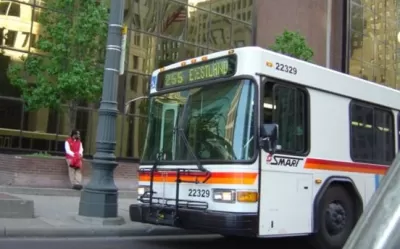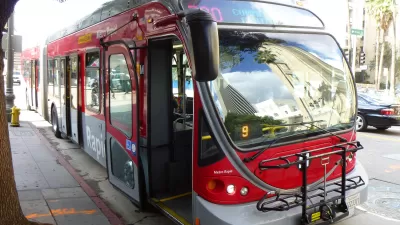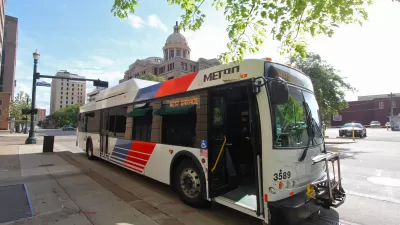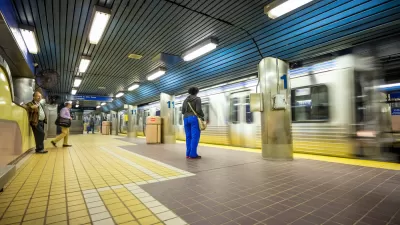Transit advocates worry that the movement to eliminate fares will come at a high cost to transit-dependent riders who rely on frequent, reliable service to reach jobs and services.

While many transit agencies are considering reducing or eliminating fares to boost ridership, some policymakers worry that the lost revenue will have a negative impact on transit service and the people who rely on it, writes Luz Lazo in The Washington Post.
Local transportation and political leaders say that while the pandemic has harmed transit, it also highlighted its critical role for 'essential' workers. Many kept riding to get to jobs at grocery stores, restaurants and hospitals as workers with more flexibility stayed home. Bus ridership has fared better than rail ridership during the pandemic, in large part because of service workers.
With fare revenue sometimes covering as much as a quarter of transit operations, agencies that eliminate fares must rely more heavily on other local, state, and federal funding sources. In the Washington D.C. region, Lazo writes, "loss of fare revenue would translate to nearly $170 million that jurisdictions would need to find from federal, state or local sources."
Lazo details the fare reduction proposals of various D.C.-area agencies, but cites surveys showing that frequency and convenient routes play a more important role in whether people choose to use transit than cost. Reduced fares can encourage more people to use public transportation, but only if it takes them where they need to go. Meanwhile, riders who rely on it worry that reduced service will make it even more difficult to get around.
The concept of fare-free transit picked up steam during the pandemic as transit agencies sought ways to bring riders back. Advocates say eliminating fares is an important step toward transit equity. And, to be clear, the structural deficits of transit operations still threaten the future of public transit.
FULL STORY: Bus systems are eyeing lower fares, leaving passengers and advocates to wonder at what cost

Maui's Vacation Rental Debate Turns Ugly
Verbal attacks, misinformation campaigns and fistfights plague a high-stakes debate to convert thousands of vacation rentals into long-term housing.

Planetizen Federal Action Tracker
A weekly monitor of how Trump’s orders and actions are impacting planners and planning in America.

Chicago’s Ghost Rails
Just beneath the surface of the modern city lie the remnants of its expansive early 20th-century streetcar system.

Bend, Oregon Zoning Reforms Prioritize Small-Scale Housing
The city altered its zoning code to allow multi-family housing and eliminated parking mandates citywide.

Amtrak Cutting Jobs, Funding to High-Speed Rail
The agency plans to cut 10 percent of its workforce and has confirmed it will not fund new high-speed rail projects.

LA Denies Basic Services to Unhoused Residents
The city has repeatedly failed to respond to requests for trash pickup at encampment sites, and eliminated a program that provided mobile showers and toilets.
Urban Design for Planners 1: Software Tools
This six-course series explores essential urban design concepts using open source software and equips planners with the tools they need to participate fully in the urban design process.
Planning for Universal Design
Learn the tools for implementing Universal Design in planning regulations.
planning NEXT
Appalachian Highlands Housing Partners
Mpact (founded as Rail~Volution)
City of Camden Redevelopment Agency
City of Astoria
City of Portland
City of Laramie





























